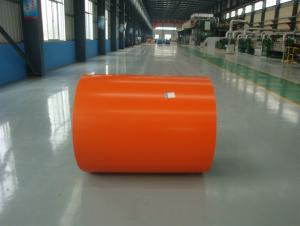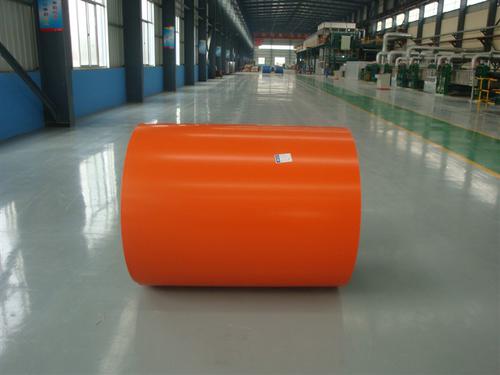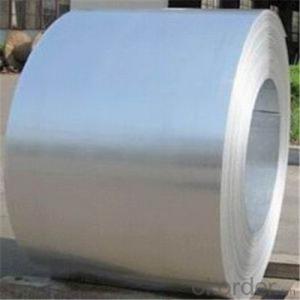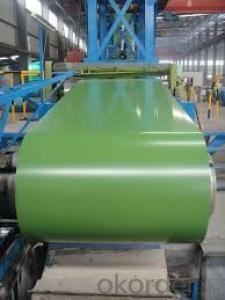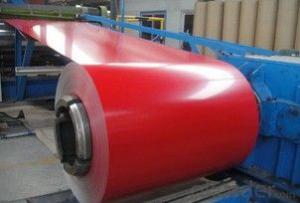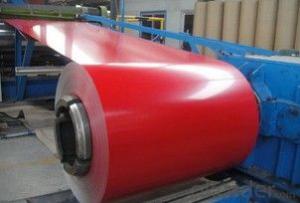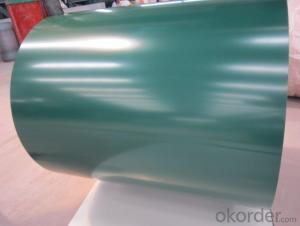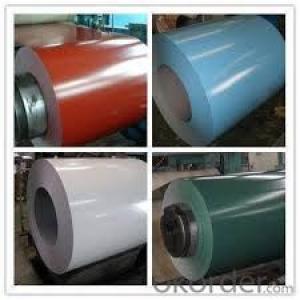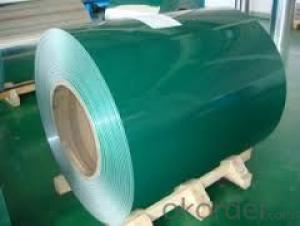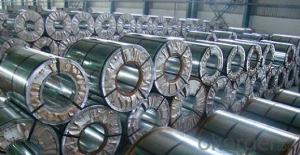PRE-PAINTED GALVANIZED STEEL COIL
- Loading Port:
- Tianjin
- Payment Terms:
- TT OR LC
- Min Order Qty:
- -
- Supply Capability:
- 8000 m.t./month
OKorder Service Pledge
Quality Product, Order Online Tracking, Timely Delivery
OKorder Financial Service
Credit Rating, Credit Services, Credit Purchasing
You Might Also Like
THICKNESS:0.18mm-1.5mm
WIDTH:900mm-1250mm
COATING MASS:Z30-Z275
PAINT:PE、HP、HDP、PVDF、SMP、MATT、PVDF
COLOR:RAL Scale
COIL INNER DIAMETER:508mm/610mm
COIL WEIGHT:3mt-7mt
BASE MATERIAL:Hot-dip GALVANIZED Steel
- Q: 3 bedroom rambler with attached garage. A bad hail storm in May damaged my white siding and roof. I am concerned insurance adjustThanks much.er will not give me replacement value for steel siding. Any one know the cost and where to buy in Minnesota.
- I'm not sure of the cost but from experience having bought steel siding instead of vinyl for my home, if you can afford the difference it is well worth your money..I've had it for 25 years and it does hold up much better than vinyl!
- Q: How are steel coils used in the production of oil and gas machinery?
- Steel coils are used in the production of oil and gas machinery as they provide essential structural support and reinforcement. These coils are typically formed into various components such as pipes, tubes, and casings, which are crucial for drilling, extraction, and transportation processes in the oil and gas industry. The strength and durability of steel coils ensure the reliability and longevity of the machinery, allowing for efficient and safe operations in the oil and gas sector.
- Q: I need the measurements of the height and hypotenuse of the first drop in the Steel Dragon 2000. I couldn't find it anywhere. It would be great if you could also show me the website where you got your answer. Thanks! =]*The hypotenuse is the length of the drop.*
- Steel Dragon 2000 is a roller coaster at Nagashima Spa Land Amusement Park in Mie Prefecture, Japan. Built by Morgan Manufacturing, this gigacoaster opened, appropriately, in 2000 - The Year of the Dragon in the Far East. It debuted only months after Millennium Force and surpassed the Cedar Point coaster as the world's tallest complete-circuit coaster. It also set a record for longest track length - 8133 feet, 2 inches (2479 m), which it currently holds. Coaster Facts * Steel Dragon 2000 is the tallest coaster to utilize a traditional chain lift. Because of the length of the lift hill, two chains are used - one for the bottom half and one for the top half. A single chain would have been excessively long and heavy, at least twice the weight of one of the trains. As a result, two trains can safely occupy the lift simultaneously. * The building of Steel Dragon 2000 required far more steel than other coasters for earthquake protection. This put the cost of the coaster at over $50,000,000. * On August 23, 2003, Steel Dragon 2000 was involved in an accident during a run in which one of its trains lost a wheel. The coaster did not operate during the 2004 and 2005 park seasons. It reopened September 3, 2006.
- Q: Can steel coils be used in the production of consumer goods?
- Consumer goods can indeed be produced using steel coils. In multiple industries, including automotive, construction, and manufacturing, steel coils are commonly employed as raw materials. Within the consumer goods sector specifically, steel coils can be utilized to manufacture a diverse array of items, spanning from appliances, furniture, and tools to packaging materials and even consumer electronics. The innate strength, durability, and adaptability of steel render it an optimal choice for fabricating consumer goods that necessitate stability, safety, and longevity. Furthermore, steel coils can be easily manipulated, molded, and shaped into distinct components or parts, enabling customization and design flexibility throughout the production process. Consequently, steel coils play an indispensable role in consumer goods production and find widespread use across various industries.
- Q: What's the best way to clean granite countertops and stainless steel appliances? My countertops especially always look dull and streaky. Thanks!!!!!!!
- Granite purely needs a wipe with washing liquid in water Dry off applying a micro fibre textile comparable which comprise your chrome steel yet to maintain it finding extreme high quality practice a splash little one oil on cotton wool and wipe over This facilitates look after its shine and lustre
- Q: How are steel coils protected against UV radiation?
- Steel coils are protected against UV radiation through the application of protective coatings or paints. These coatings act as a barrier, shielding the steel from direct exposure to UV rays, preventing oxidation and degradation of the metal.
- Q: Can steel coils be used in the production of HVAC systems?
- Yes, steel coils can be used in the production of HVAC (heating, ventilation, and air conditioning) systems. Steel coils are commonly used in the manufacturing of HVAC equipment such as air handlers, condenser coils, evaporator coils, and heat exchangers. Steel coils provide durability and strength, making them suitable for withstanding the high pressures and temperatures involved in HVAC operations. Additionally, steel coils offer good heat transfer properties, allowing for efficient heat exchange between the refrigerant and the air being conditioned. Overall, steel coils are a reliable and commonly used component in the production of HVAC systems.
- Q: Ive been playing with my ping i3 graphite irons for 6 years now and some days i can hit it and some days i cant. Then i tried out my friends irons the other day and he had steel and i was hitting the ball anywhere i wanted it to go..Is that a fluke or is steel irons just better than shaft? I was thinking about trading my graphites for steel, is that a good idea??
- Ping Graphite Iron Shafts
- Q: What are the common thickness tolerances for steel coils?
- The common thickness tolerances for steel coils usually range from +/- 0.001 to +/- 0.005 inches, depending on the specific industry standards and customer requirements.
- Q: How are steel coils used in the production of automotive components?
- Steel coils are used in the production of automotive components through a process called stamping, where the coils are fed into a machine that cuts and shapes the steel into various parts such as body panels, chassis components, and engine parts. These steel components are then assembled to create the final automotive product.
Send your message to us
PRE-PAINTED GALVANIZED STEEL COIL
- Loading Port:
- Tianjin
- Payment Terms:
- TT OR LC
- Min Order Qty:
- -
- Supply Capability:
- 8000 m.t./month
OKorder Service Pledge
Quality Product, Order Online Tracking, Timely Delivery
OKorder Financial Service
Credit Rating, Credit Services, Credit Purchasing
Similar products
Hot products
Hot Searches
Related keywords
